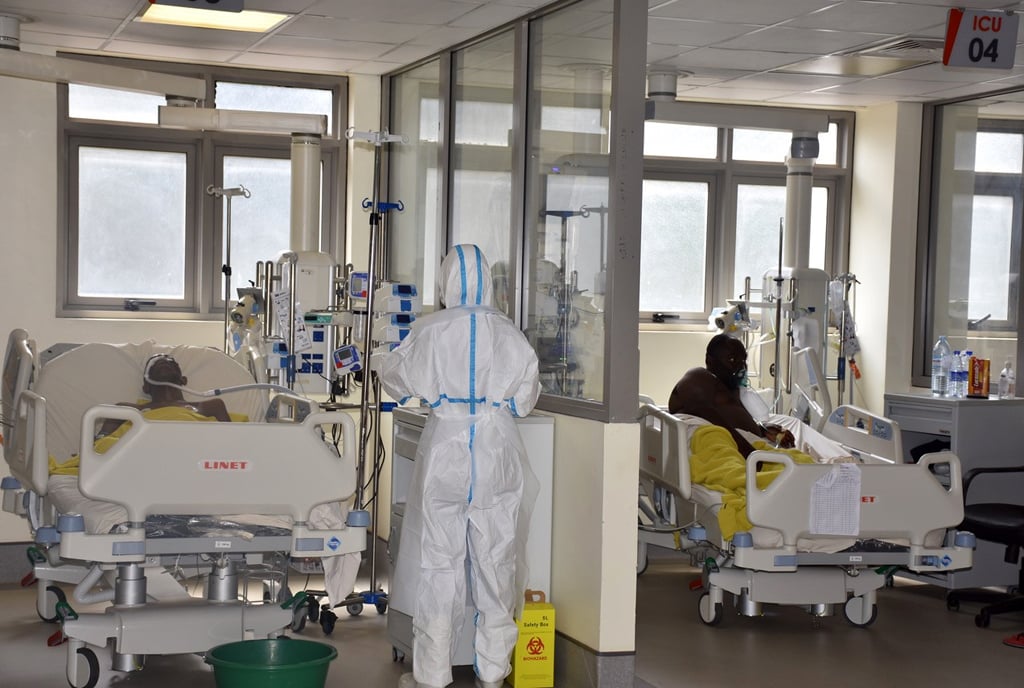Tears as IGG exposes rot in public health facilities

Mr Charles Matovu (L), who lost his daughter at Masaka Regional Referral Hospital, speaks at a meeting in Kampala on March 19, 2024. IGG spokesperson Munira Ali (R) holds the portrait of the deceased daughter. Photo/Jane Nafula
What you need to know:
- The IGG Ms Beti Kamya, said she had tasked stakeholders, including the National Medical Stores, to compile a list of challenges and solutions to issues at hand.
- She also backed the recommendation by the Ministry of Health Permanent Secretary, Dr Diana Atwine, who said the government should consider employing public servants, including health workers, on a contract basis, to check chronic absenteeism and ensure efficiency.
The office of the Inspector General of Government (IGG) yesterday exposed the rot in some public health facilities, which they say is affecting service delivery.
Some of the stakeholders, who attended yesterday’s meeting on the state of service delivery in the health sector, were touched by some of the revelations shared on how corrupt health workers extort money from unsuspecting poor parents.
Some participants, including Prof Samuel A. Lugeba, the chairperson of the Education Service Commission who tasked health workers to take their profession as a calling, and stick to ethical values to serve citizens professionally, were seen shedding tears.
While presenting the findings of a 2023/2024 inspection exercise at a meeting held in Kampala yesterday, Ms Anne Muhairwe, the deputy IGG, said extortion of money from patients, chronic staff absenteeism, poor supervision by hospital and district heads, drug theft and poor supervision were among the vices contributing to preventable deaths, in hospitals.
The team visited a total of 39 public health facilities, including health centre IVs, district and regional referral hospitals in central, eastern, northern and western Uganda.
Ms Muhairwe revealed that at Kassanda Health Centre IV, an 18-year-old girl lost her baby after she failed to raise Shs300,000 which was allegedly demanded by the medical superintendent, before she could be helped to deliver through caesarean section (C-section).
“Several patients revealed that health workers had solicited bribes. At Kasanda Health Centre IV, we were told that the Medical Superintendent demanded Shs300,000 from the boy who was responsible for the pregnancy and he disappeared, by the time the relatives of the girl raised the money, the baby was tired and died,” she said.
At the same facility, the team discovered that the lab technician was instructing patients to conduct tests from a private facility within the vicinity of the government facility at a fee, which the superintendent said he was not aware of.
Mr Charles Matovu, a parent from Bukoto in Masaka District, told the team he lost a 10-year-old daughter after a doctor at Masaka Regional Referral Hospital allegedly demanded Shs700,000 before he could operate on her.
“I had to go back home to sell land. As I looked for buyers, he (doctor) called me. He said since I like free services, I should go to Mulago National Referral Hospital. While at Mulago, doctors attended to her but the condition worsened and I lost her,” Mr Matovu said.
At Bugiri Hospital, Ms Muhairwe said the IGG team found that the facility lacked blood, while a private health facility owned by the hospital’s medical superintendent was well stocked.
She also noted that the team spent five hours at the hospital but was not able to meet the head of the hospital, exposing the challenge of absenteeism.
She also revealed that at one of the facilities, the team was taken around the hospital by a person who pretended to be a health worker yet he was a security guard.
The IGG Ms Beti Kamya, said she had tasked stakeholders, including the National Medical Stores, to compile a list of challenges and solutions to issues at hand. She also backed the recommendation by the Ministry of Health Permanent Secretary, Dr Diana Atwine, who said the government should consider employing public servants, including health workers, on a contract basis, to check chronic absenteeism and ensure efficiency.
Commenting on the findings of IGG’s inspection report, Dr Atwine said: “It speaks to things that we know. We have talked about absenteeism, negligence, staff getting salaries without doing work, understaffing, and misuse of infrastructure. The districts lack district health officers to supervise.” Dr Atwine said health workers implicated in any unprofessional acts should be interdicted immediately.
Mr Moses Kamabare, the general manager of the National Medical Stores, attributed drug stockouts and late deliveries of drugs to the late release of funds by the Ministry of Finance.




